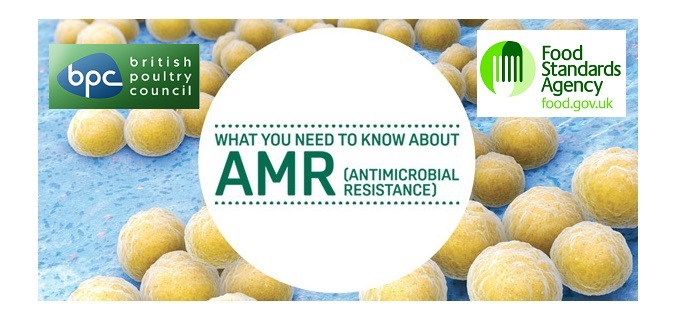The prospect of achieving a “slowing down” of antimicrobial resistance (AMR) is one of the headline points made by the Food Standards Agency (FSA) in its latest Science Report.
Published by FSA’s Chief Scientific Adviser, Professor Guy Poppy, the 19-page report, which seeks to examine the science behind AMR, has already been welcomed by the British Poultry Council, alongside a listing of poultry sector questions which need to be addressed.
“The FSA works to protect consumer interests in relation to food, so the role that food plays in the problem of antimicrobial resistance is of concern,” said Professor Poppy, adding that while the problem cannot be eliminated, its development can be slowed.
“We need a holistic approach throughout the food supply chain, and to understand how a whole range of practices, such as how we care for farm animals, handle food or irrigate crops, might affect the spread of antimicrobial resistance to our food, and ultimately to us.”
BPC responded promptly to the report’s release, commenting that the professor’s thoughts echo those of the O’Neill report and the British poultry meat industry in that agriculture has an important role to play alongside human medicine in the responsible use of antimicrobials. The Council also stated that the work the British poultry meat sector is doing to reduce the use of antibiotics and understand its impact, is “one small part” of the overall effort.
“AMR is a complex, global issue and one of the most important aspects, as Professor Poppy emphasises, is the need to expand our understanding along science-based lines,” said BPC, adding that the questions we are asking now will be crucial for our long-term knowledge of the subject.
“Recent studies have shown that both campylobacter and E.coli have developed resistance to antibiotics that are little used or not used at all in poultry production. How this occurs is one of the questions that we need to answer.
“Another question, as Professor Poppy iterates, is the exact relationship that food and livestock (cattle, sheep, pigs, poultry, fish) have with AMR seen in humans.
“Until we move the science forward we can only reiterate that for the poultry sector, being responsible means reducing the use of antibiotics without compromising the health and welfare of the birds under our care.”
BPC added that it looks forward to working on AMR issues with the FSA in the same “constructive and progressive” manner which it already enjoys with other Government departments.


